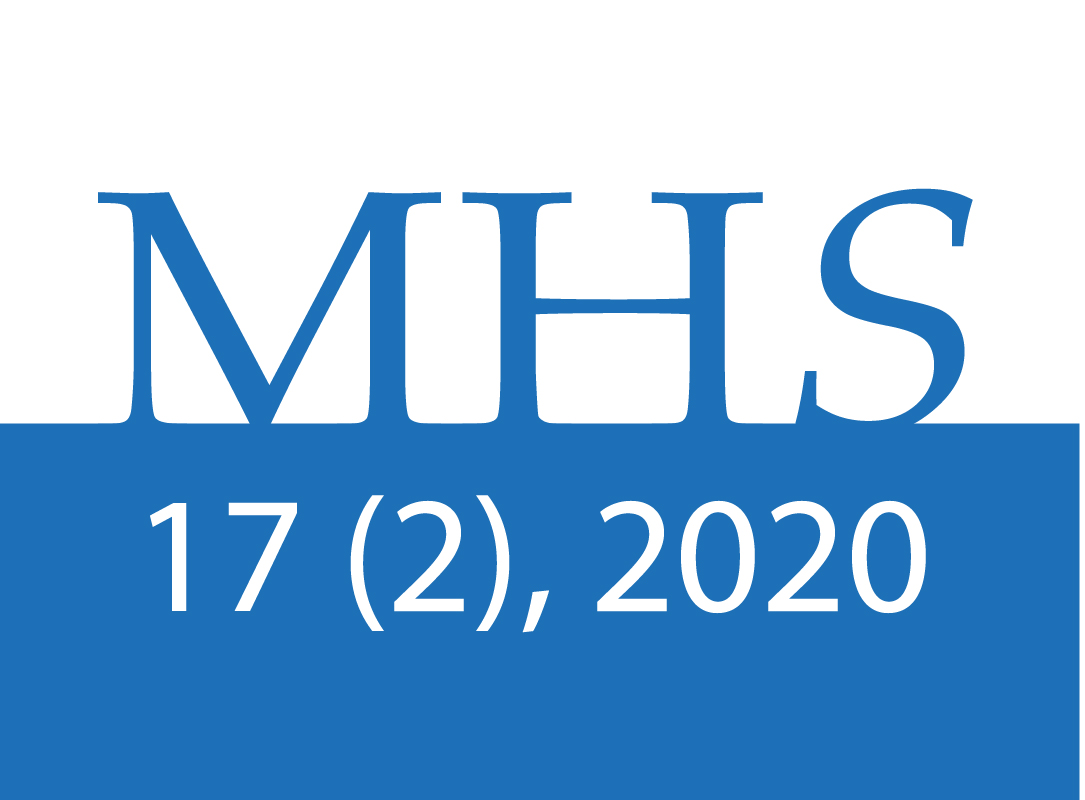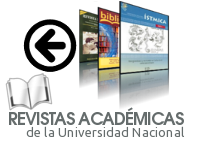Association Between Academic Stress, Body Composition, Physical Activity and Emotional Skill in College Women
DOI:
https://doi.org/10.15359/mhs.17-2.5Keywords:
health, higher education, education, psychological stress, emotional intelligenceAbstract
The present study aimed to assess and associate the variables of academic stress, body composition, practice of physical activity and the ability to manage emotions in college women. The sample was 140 female students from a public university. The Sisco survey for academic stress, the IPAQ to assess physical activity, the TMMS emotional intelligence questionnaire, and the OMROM scale HBF-514 were used to calculate the percentage of fat, weight, a height meter for height, and the respective formula for BMI assessment. Pearson correlations were applied to establish relationships between the variables. The results showed an association between the level of general academic stress and body composition variables such as fat percentage (r = .209; p = .013) and BMI (r = .198; p = .019); the results also showed relationships with emotional management variables, such as emotional understanding (r = -.262; p = .002) and emotional regulation (r = -.379; p = .000). It is concluded that academic stress is related to the behavior of the emotional control variables and the body composition of the students; these variables can have an influence on the integral health of the human being.
References
Águila, A., Calcines, M., Monteagudo, R. y Nieves, Z. (2015). Estrés académico. Edumecentro, 7(2), 163-178. http://scielo.sld.cu/scielo.php?script=sci_arttext&pid=S2077-
American Psychological Association APA. (2020). Stress relief is within reach. https://www.apa.org/topics/stress/
Ávila, J. (2014). El estrés un problema de salud del mundo actual. Rev.Cs.Farm. y Bioq, 2(1), 117-125. http://www.revistasbolivianas.org.bo/scielo.php?script=sci_arttext&pid=S2310-02652014000100013&lng=es.
Balsera, M., Chavasco. G., López, R., Pérez, A., Sánchez, M. y Villena, C. (2016). Estudio del Burnout en estudiantes de la Universidad de Granada. Influencia moduladora de variables de inteligencia emocional y clasificación por cursos. ReiDoCrea, 5(2), 27-32. https://www.ugr.es/~reidocrea/5-2-5.pdf
Banegas, A., y Sierra, L. (2017). Variables bioquímicas e inmunológicas en pacientes con estrés agudo o crónico. MEDISAN, 21(8), 1008-1017. http://scielo.sld.cu/scielo.php?script=sci_arttext&pid=S1029-30192017000800008&lng=es&tlng=es.
Barraza, A. (2006). Un modelo conceptual para el estudio del estrés académico. http://www.psicologiacientifica.com/bv/psicologiapdf-167-un-modelo-conceptual-para-el-estudio-del-estres-academico.pdf
Barraza, A. (2007). Propiedades psicométricas del inventario SISCO del estrés académico. http://www.psicologíacientifica.com
Barraza, A. y Medina, S. (2016). El estrés académico en estudiantes de gastronomía de una universidad privada de la ciudad de Durango, en México. Revista de Psicología Universidad de Antioquia, 8(2), 11-26. doi: 10.17533/udea.rpsua.v8n2a02
Barraza, M. (2008). El estrés académico en alumnos de maestría y sus variables moduladoras: Un diseño de diferencia de grupos. Avances en Psicología Latinoamericana, 26 (2), 270-289. http://www.redalyc.org/pdf/799/79926212.pdf
Barraza, M. (2008b). El estrés académico en alumnos de maestría y sus variables moduladoras: Un diseño de diferencia de grupos. Avances en Psicología Latinoamericana, 26 (2), 270-289. http://www.redalyc.org/pdf/799/79926212.pdf
Belhumeur, S., Barrientos, A. y Retana, A. (2016). Niveles de estrés de la población estudiantil en Costa Rica. Diferencias en función de las variables nivel socioeconómico, rendimiento académico, nivel académico y zona geográfica. Psychology, Society, & Education, 8(1), 13-22. http://www.psye.org/articulos/Belhumeur%20et%20al.pdf
Belkis, A., Calcines, M., Monteagudo de la Guardia, R. y Nieves, Z. (2015). Estrés académico. Scielo, 7(2), 163-178. http://scielo.sld.cu/scielo.php?script=sci_abstract&pid=S2077-28742015000200013&lng=en&nrm=iso
Briasoulis, A., Inampudi, C., Akintoye, E., Adegbala, O., Asleh, R., Alvarez, P., Bhama, J. (2018). Regional Variation in Mortality, Major Complications, and Cost after Left Ventricular Assist Device Implantation in the United States (2009-2014). The American Journal of Cardiology, 21(12), 1575-1580. http://www.doi.org/10.1016/j.amjcard.2018.02.047
C.C.S.S. (2008). Informe sobre el sistema de salud mental en Costa Rica. http://www.bvs.sa.cr/saludmental/informe.pdf
Calderas, M. J. F., Pulido, C. B. E., Martínez, G. M. G. (2007). Niveles de estrés y rendimiento académico en estudiantes de la carrera de Psicología del Centro Universitario de Los Altos. Revista. Educación y Desarrollo, (7), 77- 82. http://www.imbiomed.com.mx/1/1/articulos.php?method=showDetail&id_a rticulo=97594&id_seccion=4504&id_ejemplar=9535&id_revista=291
Campo-Ternera, L., Herazo-Beltrán, Y., García-Puello, F., Suarez-Villa, M., Méndez, O. y Vásquez-De la Hoz, F. (2017). Estilos de vida saludables de niños, niñas y adolescentes. Salud Uninorte, 33(3), 419-428. http://www.scielo.org.co/pdf/sun/v33n3/2011-7531-sun-33-03-00419.pdf
Cárdenas, K., Ontiveros, C. y Villaseñor, S. (2006). Salud mental y obesidad. Revista Médica Latinoamericana 8(2), 86-90. http://www.redalyc.org/pdf/142/14280205.pdf
Carnero, E., Alvero-Cruz, J., Giráldez, M., & Sardinha, L. (2015). La evaluación de la composición corporal "in vivo"; parte I: Perspectiva histórica. Nutrición Hospitalaria, 31(5), 1957-1967. doi:10.3305/nh.2015.31.5.8570
Castañeda, C., Campos, M. y Castillo, O. (2016). Actividad física y percepción de salud de los estudiantes universitarios. Revista de la Facultad de Medicina, 64(2), 277-284. https://dx.doi.org/10.15446/revfacmed.v64n2.53068
Castillo, I., Barrios, A. y Alvis, L. (2016). Estrés académico en estudiantes de enfermería de Cartagena, Colombia. Investigación en Enfermería: Imagen y Desarrollo, 20(2), 0124-2059. http://www.redalyc.org/articulo.oa?id=145256681002
Castillo, I. y Moncada, J. (2013). Relación entre el grado de actividad física y la satisfacción sexual y corporal en estudiantes universitarios costarricenses. Cuadernos de Psicologia del Deporte, 13(1), 15-24. doi: 10.4321/S1578-84232013000100003
Chacón, R., Zurita, F., Castro, M., Espejo, T., Martínez, A., & Pérez, A. (2017). Motivational climate in sport and its relationship with digital sedentary leisure habits in university students. Saúde e Sociedade, 26(1), 29-39. http://www.revistas.usp.br/sausoc/article/view/132822/128863
Collazo, R. y Hernández, C.A. (2014). El estrés académico: Una revisión crítica del concepto desde las ciencias de la educación. Revista Electrónica Psicología Iztacala, 14(2). http://www.revistas.unam.mx/index.php/repi/article/view/26023/24499
Córdoba D, Carmona M, Terán O. E, Márquez O. (2013). Life style and nutritional status in university students: a descriptive, cross-sectional study. Medwave, 13(11) https://www.medwave.cl/link.cgi/Medwave/Estudios/Investigacion/5864
Del Rosal, I., Dávila, M., Sánchez, S., & Bermejo, M. (2016). La inteligencia emocional en estudiantes universitarios: Diferencias entre el grado de maestro en educación primaria y los grados en ciencias. International Journal of Developmental and Educational Psychology, 2 (1), 51-61. http://www.infad.eu/RevistaINFAD/OJS/index.php/IJODAEP/article/view/176
Díaz, C. S., Arrieta, V. K. y González, M. F. (2014). Estrés académico y funcionalidad familiar en estudiantes de odontología. Revista Científica Salud Uninorte, 30(2), 121-132. http://www.scielo.org.co/pdf/sun/v30n2/v30n2a04.pdf
Díaz, S., González, F., Arrieta, K. (2014). Niveles de actividad física asociados a factores sociodemográficos, antropométricos y conductuales en universitarios de Cartagena (Colombia). Salud Uninorte, 30(3), 405-17. http://rcientificas.uninorte.edu.co/index.php/salud/article/viewArticle/6199/7094
Durán, S., Beyzaga, C. y Miranda, M. (2016). Comparación en autopercepción de la imagen corporal en estudiantes universitarios evaluados según índice de masa corporal y porcentaje de grasa. Revista española de nutrición humana y dietética, 20 (3), 180-189. http://renhyd.org/index.php/renhyd/article/view/209/200
Estrada, L., Moysén, A., Balcazar, P., Garay, J., Villaveces, M.C. y Gurrola, G. (2016). Inteligencia emocional en estudiantes universitarios mexicanos. Interpsiquis. http://ri.uaemex.mx/handle/20.500.11799/65573
Evaristo-Chiyong, T. y Chein-Villacampa, S. (2015). Estrés y desempeño académico en estudiantes de odontología. Odontol. Sanmarquina, 18(1), 23-27. http://webcache.googleusercontent.com/search?q=cache:f2UVsyVslFkJ:revistasinvestigacion.unmsm.edu.pe/index.php/odont/article/download/11336/10211+&cd=4&hl=es-419&ct=clnk&gl=cr
Extremera, N. y Durán, A. (2007). Inteligencia emocional y su relación con los niveles de burnout, engagement y estrés en estudiantes universitarios. Revista de Educación, 342, 239-256. http://www.revistaeducacion.mec.es/re342/re342_12.pdf
Fernández, P., Extremera, N. y Ramos, N. (2004). Validity and reliability of the Spanish modified version of the Trait Meta-Mood Scale. Psychological Reports, 94, 751-755. http://emotional.intelligence.uma.es/pdfs/spanish%20tmms.pdf
Gartzia, L., Aritzeta, A., Balluerka, N. y Barberá, E. (2012). Inteligencia emocional y género: Más allá de las diferencias sexuales. Anales de psicología, 28(2), 567-575. https://www.redalyc.org/articulo.oa?id=167/16723135028
González, R., Souto, A. y Fernández, R. (2017). Perfiles de regulación emocional y estrés académico en estudiantes de fisioterapia. European Journal of Education and Psychology, 10(2), 57- 67. http://www.redalyc.org/pdf/1293/129353356003.pdf
Hasegawa, Y., Ninomiya, K., Fujii, K., Sekimoto, T. (2016). Emotional intelligence score and performance of dental undergraduates. Odontology, 104(3), 397-401. https://www.ncbi.nlm.nih.gov/pubmed/26497566
Hopkins, W. G., Marshall, S. W., Batterham, A. M., & Hanin, J. (2009). Progressive Statistics for Studies in Sports Medicine and Exercise Science. Medicine & Science in Sports & Exercise, 41(1), 3–13.
https://doi.org/10.1249/MSS.0b013e31818cb278
Jerez-Mendoza, M. y Oyarzo-Barría, C. (2015). Estrés académico en estudiantes del Departamento de Salud de la Universidad de Los Lagos Osorno. Revista Chilena de Neuropsiquiatría, 53(3), 149-157. http://www.redalyc.org/pdf/3315/331542277002.pdf
Kim, H. J., Martins, S. S., Shmulewitz, D., Santaella, J., Wall, M. M., Keyes, M. K., Eaton, R. N., Krueger, R., Grant, F. B. & Hasin, S. D. (2014). Childhood maltreatment, stressful life events, and alcohol craving in adult drinkers. Alcohol Clin Exp Res. 38(7), 2048-2055. https://www.ncbi.nlm.nih.gov/pubmed/24961735
Lamb, M. J., Byrne, C. D., Wilson, J. F., & Wild, S. H. (2014). Evaluation of bioelectrical impedance analysis for identifying overweight individuals at increased cardiometabolic risk: a cross-sectional study. PloS one, 9(9), e106134. https://doi.org/10.1371/journal.pone.0106134
León, G. (2013). ¿Puede el burnout afectar al estudiantado universitario? Revista CAES, 4(1). https://dialnet.unirioja.es/descarga/articulo/5580821.pdf
Macías, M. A., Madariaga, C., Valle, M. y Zambrano J. (2013). Estrategias de afrontamiento individual y familiar frente a situaciones de estrés psicológico. Psicología desde el Caribe, 30(1), 123-145. http://rcientificas.uninorte.edu.co/index.php/psicologia/article/view/2051/6906
Mantilla, S. C. y Gómez, A. (2007). Cuestionario internacional de actividad física. Un instrumento adecuado en el seguimiento de la actividad física poblacional. Rev Iberoam Fisioter Kinesol, 10(1), 48-52. http://apps.elsevier.es/watermark/ctl_servlet?_f=10&pident_articulo=13107139&pident_usuario=0&pcontactid=&pident_revista=176&ty=160&accion=L&origen=zonadelectura&web=www.elsevier.es&lan=es&fichero=176v10n01a13107139pdf001.pdf
Martín, I. (2007). Estrés académico en estudiantes universitarios. Apuntes de psicología, 25(1), 87-99. https://idus.us.es/xmlui/bitstream/handle/11441/12812/file_1.pdf
Martínez, J. M. & Balaguer, A. (2016). Universidad saludable: Una estrategia de promoción de la salud y salud en todas las políticas para crear un entorno de trabajo saludable. Archivos de Prevención de Riesgos
Laborales, 19(3), 175-177. https://dx.doi.org/10.12961/aprl.2016.19.03.4
Marugán, J. M., Monasterio, L. y Pavón M. (2010). Alimentación en el adolescente. Protocolos diagnóstico-terapéuticos de gastroenterología, hepatología y nutrición pediátrica. SEGHNP-AEP. ERGON. https://www.seghnp.org/sites/default/files/2017-05/Protocolos%20SEGHNP.pdf
Maturana, H. y Vargas, A. (2014). El estrés escolar. Revista Clínica Las Condes, 26 (1), 34-41. https://www.researchgate.net/publication/273791533_El_estres_escolar
McCarthy, H. D., Cole, T. J., Fry, T., Jebb, S. A., & Prentice, A. M. (2006). Body fat reference curves for children. International Journal of obesity, 30(4), 598-602. https://www.ncbi.nlm.nih.gov/pubmed/16570089
Morales, I., Del Valle, R., Soto, V. y Daniza, I. (2013). Factores de riesgo cardiovascular en estudiantes universitarios. Revista chilena de nutrición, 40(4), 391-396. http://www.scielo.cl/scielo.php?script=sci_arttext&pid=S0717-75182013000400010&lng=es&tlng=es. 10.4067/S0717-75182013000400010
Narwal, K. y Sharma, S. (2018). A study of relationship between emotional intelligence and academic stress of visually disabled students. Journal of educational studie strends and practices, 8(2), 190-196. https://pdfs.semanticscholar.org/0bb1/962d3cc7f27c1288e84a487094f34c4ab0cd.
Enns, A., Eldridge, G., Montgomery, C. y González, V. (2018). Perceived stress, coping strategies, and emotional intelligence: Across-section al study of university students in helping disciplines. Nurse education today, 68, 226-23. https://www.ncbi.nlm.nih.gov/pubmed/30053557
OMS. (2018). Depresión. https://www.who.int/es/news-room/fact-sheets/detail/depression
OMS. (2018b). Obesidad y sobrepeso. http://www.who.int/es/news-room/fact-sheets/detail/obesity-and-overweight
OMS. (2019). CIE-11. Clasificación internacional de enfermedades, 11.a revisión. https://icd.who.int/es
OMS. (2020). Estrategia mundial sobre régimen alimentario, actividad física y salud. https://www.who.int/dietphysicalactivity/pa/es/
OMS. (2020b). Obesidad. https://www.who.int/topics/obesity/es/
Orellano, C. (2015). Factores de riesgo psicológico en pacientes con enfermedad cardiovascular. Perspectivas en psicología, 12(1), 52 – 56. https://webcache.googleusercontent.com/search?q=cache:TcjLA0VmQZwJ:https://dialnet.unirioja.es/descarga/articulo/5115265.pdf+&cd=5&hl=es-419&ct=clnk&gl=cr
Oropeza, R., Ávalos, M. y Ferreyra, D. (2017). Comparación entre rendimiento académico, autoeficacia y práctica deportiva en universitarios. Actualidades Investigativas en Educación 17(1). https://www.doi.org/10.15517/aie.v17i1.27271
Pau, A., Rowland, M. L., Naidoo, S., AbdulKadir, R., Makrynika, E., Moraru, R., Huang, B., & Croucher, R. (2007). Emotional Intelligence and Perceived Stress in Dental Undergraduates: A Multinational Survey. Journal of Dental Education, 71(2), 197-204. https://www.ncbi.nlm.nih.gov/pubmed/14518841
Picasso, M., Lizano, C., Anduaga, S. (2016). Estrés académico e inteligencia emocional en estudiantes de odontología de una universidad peruana. KIRU, 13(2), 155-164. http://www.usmp.edu.pe/odonto/servicio/2016/02/1020-3490-1-PB.pdf
Picasso, M. A., Huillca, N., Ávalos, J., Omori, E., Gallardo, A. y Salas, M. (2012). Síndrome de Burnout en estudiantes de odontología de una universidad peruana. Kiru, 9(1), 51-58. http://www.aulavirtualusmp.pe/ojs/index.php/Rev-Kiru0/article/view/202
Práxedes, A., Sevil, J., Moreno, A., Del Villar, F. y García, L. (2016). Niveles de actividad física en estudiantes universitarios: Diferencias en función del género, la edad y los estados de cambio. Revista Iberoamericana de Psicología del Ejercicio y el Deporte, 11(1), 123-132. http://www.redalyc.org/pdf/3111/311143051014.pdf
Puertas-Molero, P., Zurita-Ortega, F., Chacón-Cuberos, R., Castro-Sánchez, M., Ramírez-Granizo, I., & González
Valero, G. (2020). Emotional intelligence in the educational field: a meta-analysis. Anales de Psicología, 36(1), 84-91. https://doi.org/10.6018/analesps.345901
Ramón, G., Zapata, S. y Cardona, J. (2014). Estrés laboral y actividad física en empleados. Diversitas. Perspectivas en Psicología, 10(1), 131-141. http://www.redalyc.org/pdf/679/67935714009.pdf
Rangel, L. G., Rojas, L. Z. y Gambia, E. M. (2015). Sobrepeso y obesidad en estudiantes universitarios colombianos y su asociación con la actividad física. Nutrición Hospitalaria, 31(2), 629-636. http://www.aulamedica.es/nh/pdf/7757.pdf
Reynoso, M., Castillo, J. y Dimas, M. I. (2014). La formación integral del estudiantado de ingeniería a través de la educación continua. Revista Electrónica Educare, 18(1), 77-96. https://www.scielo.sa.cr/scielo.php?script=sci_arttext&pid=S1409-42582014000100005
Rivas, V., Jiménez, P., Méndez, H., Cruz, M., Magaña, M., Victorino, A. (2014). Frecuencia e intensidad del estrés en estudiantes de Licenciatura en Enfermería de la DACS. Horizonte Sanitario, 13(1), 162-169. https://www.redalyc.org/articulo.oa?id=457845146002
Romaguera, D., Tauler, P., Bennasar, M., Pericas, J., Moreno, C., Martínez, S., & Aguilo, A. (2011). Determinants and patterns of physical activity practice among Spanish university students. Journal of Sports Sciences, 29(9), 989-997. https://doi.org/10.1080/02640414.2011.578149.
Salafia, M. V., Casari, L. y Vera, M. (2015). La inteligencia emocional en personas con sobrepeso y obesidad. Eureka, 12(2), 193–204. https://www.researchgate.net/publication/286925825_LA_INTELIGENCIA_EMOCIONAL_EN_PERSONAS_CON_SOBREPESO_Y_OBESIDAD_EMOTIONALINTELIGENCE_IN_PEOPLE_WITH_OVERWEIGHT_AND_OBESITY
Sánchez, D., León, S. y Barragan, C. (2014). Correlación de inteligencia emocional con bienestar psicológico y rendimiento académico en alumnos de licenciatura. Investigación. Educación Médica, 4(15), 126-132. http://www.sciencedirect.com/science/article/pii/S200750571500023X
Sarabdjitsingh, R., Joëls, M., y Kloet, E. R. (2011). Glucocorticoid pulsatility and rapid corticosteroid actions in the central stress response. Physiol Behav, 106(1), 73-80. http://www.doi.org/10.1016/j.physbeh.2011.09.017.
Secchi, J. D., García, G. C., Espana-Romero, V., & Castro-Pinero, J. (2014). Physical fitness and future cardiovascular risk in argentine children and adolescents: an introduction to the ALPHA test battery. Archivos Argentinos de Pediatría, 112(2). http://dx.doi.org/10.5546/aap.2014.eng.132
Suárez, Y. y Wilches, C. (2015). Habilidades emocionales en una muestra de estudiantes universitarios: Las diferencias de género. Revista Educación y Humanismo, 17(28), 119-132. http://dx.doi.org/10.17081/eduhum.17.28.1170
Tolentino, S. (2009). Perfil de estrés académico en alumnos de Licenciatura en Psicología, de la Universidad Autónoma de Hidalgo en la escuela superior de Actopan. http://dgsa.uaeh.edu.mx:8080/bibliotecadigital/handle/231104/243
Torrego, L. & Ruiz, C. (2011). La coordinación docente en la implantación de los títulos de grado. REIFOP, 14(4). https://webcache.googleusercontent.com/search?q=cache:af3dJtPEx9sJ:https://dialnet.unirioja.es/servlet/articulo%3Fcodigo%3D4625653+&cd=1&hl=es419&ct=clnk&gl=cr
Trujano, M., Ramos, E., y Rodríguez, M. (2014). Efectos del trabajo académico en la salud y las relaciones familiares de hombres y mujeres estudiantes universitarios. Revista electrónica de psicología Iztacala, 17(1). http://www.revistas.unam.mx/index.php/repi/article/view/46878
Van Dyck, D., De Bourdeaudhuij, L., Deliens, T., Deforche, B. (2015). Can changes in psychosocial factors and residency explain the decrease in physical activity during the transition from high school to college or university? International journal of behavioral medicine, 22(2), 178-86. https://www.ncbi.nlm.nih.gov/pubmed/25031186
Varela, G., Alguacil, L., Aperte, E., Aranceta, J., Ávila, T. y Aznar, L. (2013). Obesidad y sedentarismo en el siglo XXI: ¿Qué se puede y se debe hacer? Nutrición. Hospitalaria, 5(28). http://scielo.isciii.es/scielo.php?script=sci_arttext&pid=S0212-16112013001100001&lng=es
Wang, J., Korczykowski, M., Rao, H., Fan, Y., Pluta, J. Gur, R., McEwen, B., Detre, J. (2007). Gender difference in neural response to psychological stress. Social Cognitive and Affective Neuroscience, 2(3), 227–239. https://doi.org/10.1093/scan/nsm018
Published
How to Cite
Issue
Section
License
General conditions
MHSalud: Journal in Human Movement Sciences and Health by the Universidad Nacional is cover under a Creative Commons Atribución-NoComercial-SinDerivadas 3.0 Costa Rica license.
The journal is hosted in open access repositories such as the Institutional Repository of the Universidad Nacional, the Kimuk Repository of Costa Rica and La Referencia.
The editorial source of the journal must be recognized. Use the doi identifier for this purpose.
Self-archiving policy: The journal allows the self-archiving of the articles in their peer-reviewed version, edited and approved by the Editorial Board of the Journal to be available in Open Access through the Internet. More information in the following link: https://v2.sherpa.ac.uk/id/publication/25815



















